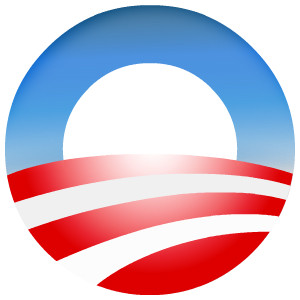Not to make outrageous comparisons, but I predict that Obama's governing style will be much like those of America's two most popular presidents: George Washington and Abraham Lincoln.
George Washington had an eye toward historical precedent. He knew, for example, that what he did as President would affect future presidencies to come. For example, when it came to title, he rejected high-falootin' salutations like "His Excellency" or "His Majesty", preferring instead the more humble "Mr. President" (which is how we still address our presidents today). Seeing his occupation as a civil servent, Washington initially rejected a presidential salary (he was already wealthy). He accepted it only so that, in the future, it would prevent only wealthy men from seeking that office. And although nothing barred him from serving a third term (which he surely would have done), Washington left office after two terms (the second of which he didn't really want either), much in the style of Cincinnatus.
Washington was the first president, and more importantly, he knew he was the first president. He realized the import of this, and ran his White House in such a way that many of his practices are still in use today.
As the 44th president, Obama has less of an opportunity to establish historical precedents. But like Washington, he possesses the ability to see beyond the immediate issues before him, and consider how his actions will look 20, 50, and 100 years from now. It's what Bush 41 called "the vision thing".
Obama is like Washington in the sense that he is not extremely partisan. Washington, of course, belonged to no political party, because there were no political parties when Washington became president. But there were political factions. Washington, to his credit, surrounded himself with adherents of these factions, encouraged and listened to their debates, and THEN made a decision. That governing style is the polar opposite of what we saw in the Bush 43 White House — an insular bubble of like thinkers, where loyalty to the party line was rewarded, and thoughtful dissent was discouraged.
Lincoln took this a step further. He put some of his most strident political rivals in his cabinet — people like Salmon Chase and William Seward. Lincoln had defeated them for the Republican party nomination, and both of them — quite openly — expressed the view that they would have made a better President. It was an inharmonious cabinet, but in the inharmony, it served Lincoln well.
Lincoln treated these men pleasantly and cordially. More importantly, he listened to them. And if Lincoln rendered a decision along the lines urged by his political rivals on the cabinet, it was because he was persuaded by them.
I suspect that Obama will govern the same way. One can glean this from his days as the president of the Harvard Law Review.
The Harvard Law Review is not your typical school newspaper. It's considered one of the most scholarly legal publications in the world. Just getting elected president of the HLR (the first black president) was enough for Obama to receive a lucrative book deal, which he took (the book was "Dreams of My Father"). Obama presided over a team of 60 hot-headed, ambitious, opinionated Harvard law school students who served as the editors. He worked 50-60 hours a week on the publication.
Back then, the political lines were as sharp as they were now. And naturally, the editors quarrelled along liberal/conservative lines about what articles to include, what positions the HLR should take, etc. Obama would lean back and let these debates play out, listening closely. If things got out of hand, he would deflate the fuming editors, saying things like, "Hey. Just remember — nobody reads this thing anyway".
But ultimately, he would make a decision after hearing all points of view. And it wasn't necessarily the most progressive decision. For example, the Review published a searing attack on affirmative action, written by a former Reagan official, although Obama hnimself privately acknowledge that he was a beneficiary of affimative action. When working with authors — which included judges, scholars, and politicians — Obama didn't try to get them to slant their article to fit HIS point of view. Instead, he would work to try to make sure the article worked from the author's point of view. During his tenure as president of the Review, Obama didn't leave his ideological stamp, and respected — sometimes embraced — opposition views.
This is a remarkable skill, and something rare in presidents (especially of late): the ability to understand viewpoints of the opposition. It is Obama's greatest strength. It is what makes him NOT an idealogue.
So I suspect that, as President of the United States, Obama will do as he promised in his victory speech: he will not only preside over an administration of thinkers, but an administration of thinkers with opposing views. It would not surprise me to see him appoint Republicans to key posts (i.e., keep Gates on as Secretary of Defense). He works in a non-partisan manner, and rejects "identity politics". He'll give the jobs to the best man, and not necessarily the most politically expedient one.
While this may prove to be a disappointment to those who want Obama to be a "progressive Bush", it probably serves the country best. It will, hopefully, unite us, despite our differences.

